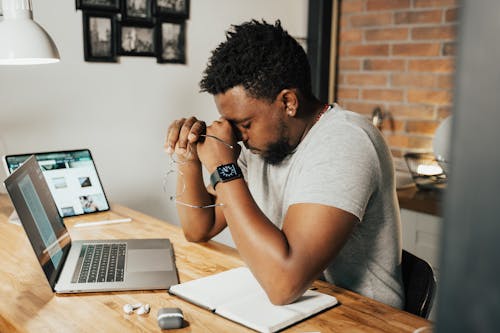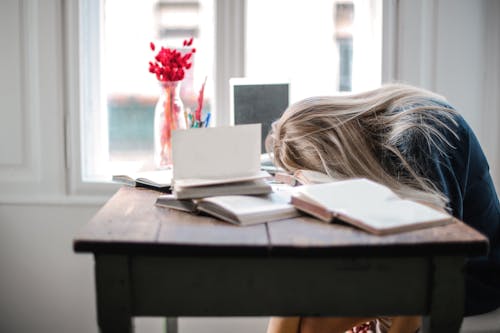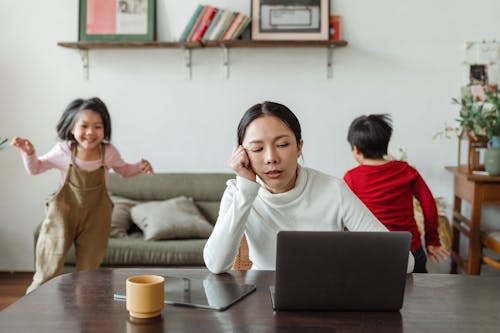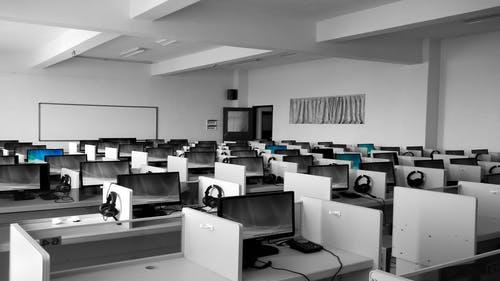If you’re a little freaked out by returning to the office after almost two years of working from home – you’re not alone.
With the vaccination rollout such a success in Ireland in comparison to other countries, we’re enjoying a level of freedom now that I think most of us thought was very far off. People are holidaying, eating inside in restaurants and bars, large events and weddings are back to their normal capacities and activities. There’s very little left to reopen (except perhaps quite noticeably, the arts and entertainment sector).
But even with all this great news and progress with reopening, it doesn’t seem so long ago that we weren’t able to leave our county, or eat food that hasn’t come from a takeaway bag. And for a lot of people, that’s a very scary thought.

Lockdown has left its mark on all of us. The things that were once so normal, like getting public transport, eating inside, being in large crowds, are now anxiety-inducing experiences for many of us. And with the return to office happening this week for many people, it seems like one of the final frontiers of lockdown - working from home – has now been breached. We have left our lockdown bubble and while we hated that bubble, it provided a lot of safety and comfort the last few months as well as all the frustration. So it’s understandable that many of us have a complicated relationship with leaving it behind, even with the vaccine rollout going strong.
The situation is constantly developing and the government are obviously following public health advice as well as considering the economic impact of lockdown, but it’s thrown plenty of us off our guard. But is it just cases that have so many of us afraid of the impending return to ‘normal’ life?

We spent the year mourning and grieving for our lives in the ‘old world’ and yet are so afraid to step back into it. Maybe its because we know that this society that we’re coming back to is changed irrevocably – that it’s not the same old world we’re returning to, but actually entering a brand new one that’s stuck somewhere between our locked down world and our old world. A strange blend of the two, which creates uncertainty and fear – because we have no idea what it will look like.
Many of us have even re-evaluated that ‘old world’ and how satisfied we were with it really. Not that a pandemic or a lockdown was any kind of blessing, but it definitely made a lot of us stop and think about our daily habits for the first time in a long time. Maybe we had to leave the office to see how much it was draining us. Maybe we had to live 24/7 with our person to realise that maybe they weren’t our person after all. Maybe our hectic lifestyles had to grind to a halt to realise who was really there for us, what really mattered and if our life was as fulfilling as it seemed.

The idea of returning to that world – even though both it, and we, have changed – is causing people to experience ‘post-lockdown anxiety’, a condition newly recognized by mental-health charity Anxiety UK. Defined as ‘the fear or worry of returning to normal life and leaving lockdown.’ Wateringbury Surgery, a group of clinics, explained why the idea of leaving lockdown is so stressful to us, even though the conditions of lockdown were already exacerbating the nationwide rise of cases of anxiety.
‘Lock down was an opportunity to opt out of all the pressures of the outside world and actually come as a welcome relief. With more time to sleep, read, and reflect, some people with pre-existing mental health conditions are even seeing their moods improve — which is why the idea of ending lockdown is so jarring.’

Being faced with the impending return to the office and the prospect of going back to a commuter lifestyle and overloaded schedule has prompted what people are calling ‘The Great Resignation’. Since the jarring impact of the pandemic hit, people have awoken from their 9-5 stupors and reassessed their lives, causing a mass shift in people’s priorities. Employees in their masses have quit jobs, changed career paths or switched up their lifestyles entirely as they realised their routine in their pre-pandemic life wasn’t fulfilling or satisfying them.
Microsoft actually conducted a survey of 30,000 workers worldwide that showed 41% of them were considering quitting or changing professions, while a survey by a HR software company, Personio, of workers in the UK and Ireland showed 38% of those surveyed planned to quit in the next six months to a year.

Economists have dubbed this ‘The Great Resignation’ and believe there are a few reasons behind it. One of the main reasons was the mindset shift that the pandemic brought, but for many employees, how their employers reacted and treated them during the pandemic was also a major factor. People had safety and mental health concerns during the trying and worrying times and felt their needs weren’t being met.
We all know what working from home was like. We’ve all read countless articles about the pros and the cons and mental health, so we won’t go into it. But the challenging circumstances of working from home when no accommodations were made drove a lot of employees to the edge of their patience. And at the same time, many employees realised how much they preferred being around the home instead in the workspace on a commuter schedule.

Economists warned employers not to force employee back to work too soon, as the treatment of their employees during the pandemic would become their legacy and affect their future applications from potential employees, something which is proving to be true. People care more about the kind of working environment they’re entering now, about prioritising mental health and family and life outside of the workplace. So, if nothing else, the pandemic does seem to have caused a power shift from employers to employees.
Will it last as we return to offices? Perhaps that’s one of the reasons for the anxiety we’re experiencing, but life does seem to be moving forward again and so, it seems, must we.







